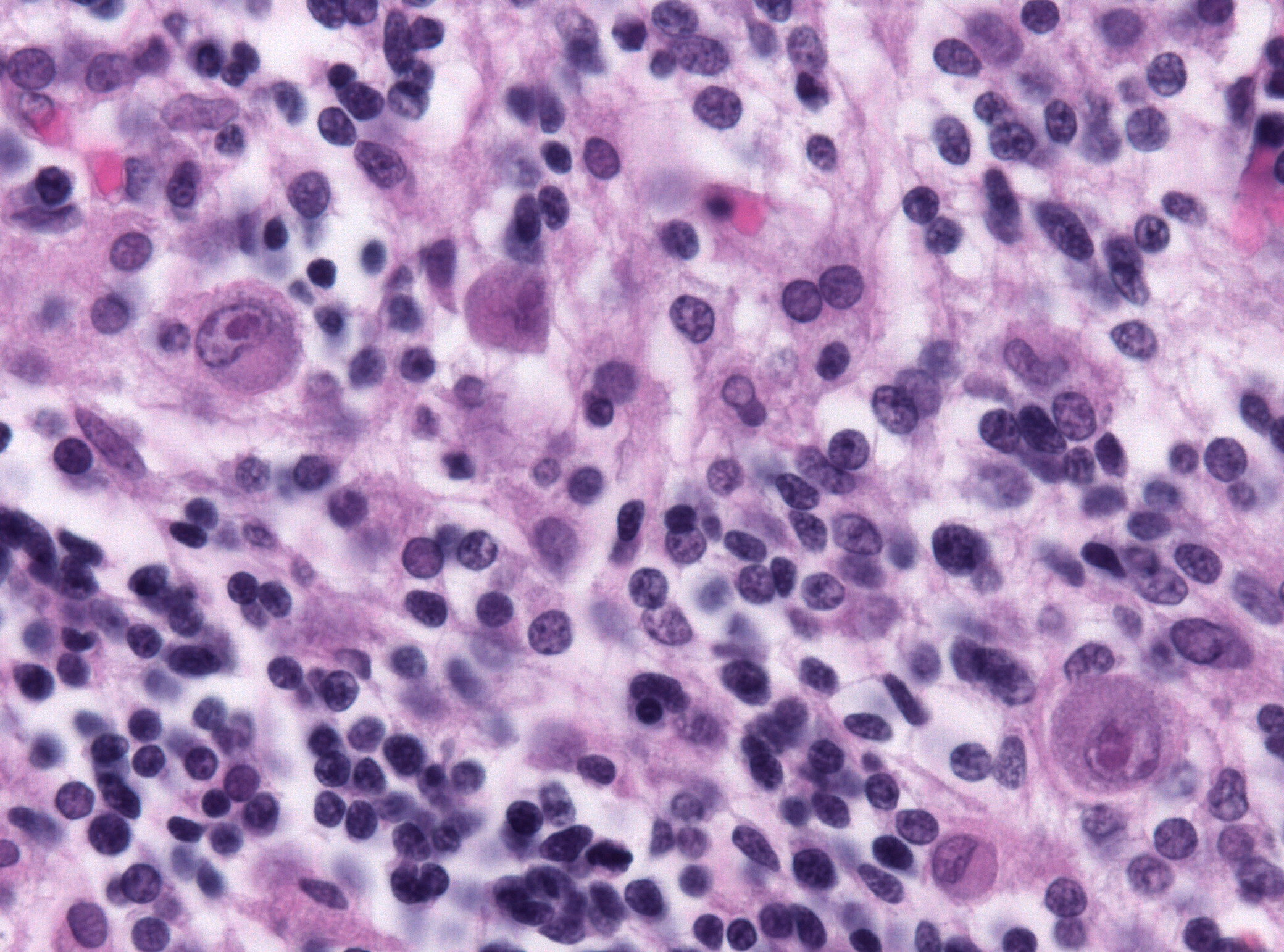News
CMV, a challenge for vaccination
November 27th 2019
The main goal of a cytomegalovirus (CMV) vaccine is to prevent the transmission of the virus from the mother to the foetus. Still, the question remains of which antibodies should be induced by the vaccine—this is what an international consortium of researchers, coordinated by the IMI, is working on.

The cytomegalovirus (CMV) belongs to the family of herpes viruses. While CMV infection is generally benign for the mother (1), its complications in foetuses and children can be severe: deafness (2), delayed psychomotor development, etc. This is why creating a vaccine is a major public health priority. And it’s a monumental task: researchers have been trying to achieve this for over half a century. So far, success has been limited.
One vaccine, two challenges
Why is it so difficult to develop a vaccine that can protect both women and foetuses against the CMV? For Professor Arnaud Marchant, director of the IMI and coordinator of the CYMAF project, this vaccine is challenging on two fronts:
- Choosing the right target antigens for vaccination. ‘The CMV is a complex virus’, he explains. ‘It uses highly elaborate mechanisms to infect nearly all the cells in our body. Candidate vaccines developed so far—which target envelope protein gB—have not been able to protect all women from infection. In the past few years, however, other viral proteins were discovered that are targeted by new vaccine candidates.’
- Inducing an efficient immune response. ‘We must identify the most effective antibodies in order to stop the virus from being transmitted from the mother to the foetus. We now know that antibodies have highly polymorphic structures, which have significant effects on their function.’
Placing emphasis on antibody quality
For decades, research focused on measuring the quantity of antibodies induced by an infection or a vaccination. In recent years, however, a new approach called systems serology has enabled researchers to make highly accurate assessments of the quality of antibodies. A scientific revolution! ‘By combining several techniques, we can identify the structure and functional properties of each antibody’, continues Professor Marchant. What’s more, bioinformatics allows us to process large volumes of data and extract relevant information.’
The CYMAF research programme
CYMAF is a European research programme coordinated by ULB’s IMI. It gathers 6 partner academics (including from Italy, Israel and the United States), whose diverse expertise has enabled progress on three fronts:
- Anti-CMV antibody analyses using systems serology.
- Identification of the characteristics of antibodies associated with the prevention of virus transmission from the mother to the foetus.
- Ex vivo analysis of CMV control in the placenta by monoclonal antibodies with a specifically designed structure.
‘This three-year programme concludes next year. Our results now enable us to conclude a partnership with pharmaceutical companies, thus directly contributing to developing a vaccine that is effective for all women.’
Notes:
- In Belgium, around half of all pregnant women have already been infected by the CMV.
- This virus is the leading non-genetic cause of congenital deafness.
Author: Candice Leblanc

 My biopark
My biopark


